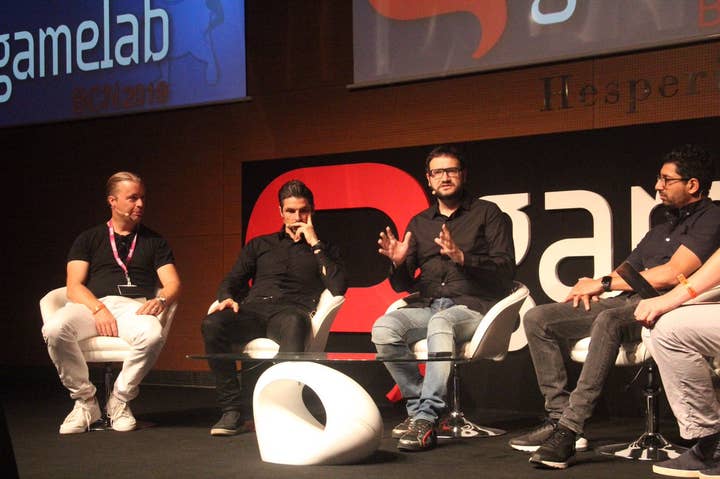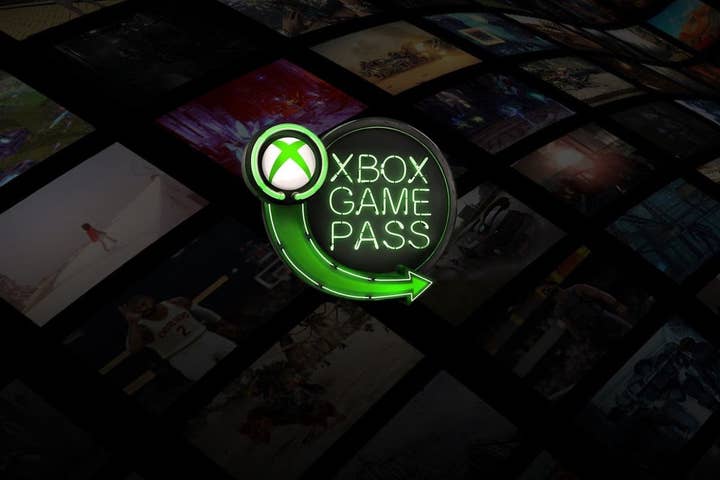"Xbox Game Pass is the first time subscription is fair for developers"
At Gamelab 2019, a panel of developers debated the breakthrough Microsoft has made with its subscription service
Xbox Game Pass is the first time that the subscription model has made economic sense for game developers, according to Playdead and Jumpship co-founder Dino Patti.
Speaking on a panel hosted by GamesIndustry.biz at Gamelab 2019, Patti touched on a subject that often gets lost amid the noise around Microsoft's first-party studio acquisitions. While Double Fine, Obsidian, inXile and the rest will be making content for Game Pass, third-party studios face a different reality.
"With subscription models, there are two angles: the consumer angle and the developer angle," said Dino Patti, who departed Playdead in 2016, and has since co-founded both Jumpship and Coherence. "Consumers want as many games as possible, as cheaply as possible... But the developer needs to look at what [the deal] gives them."
"With Game Pass, Microsoft is doing it correctly for the developers"
Dino Patti
Microsoft's first-party studios will be judged by a certain set of metrics, of course, but for third-party studios to be involved with Game Pass, the deal has to make sense upfront. In that respect, Patti said, previous subscription services like OnLive and Gaikai fell short even despite the technical limitations of streaming. Game Pass is not a streaming service, but from Patti's point-of-view Microsoft has got the most important aspect right.
"For me -- and I might be a bit biased -- but I think the way the business is with Game Pass is the first time subscription is what could be considered fair for developers," he added. "All other business models that have been suggested with subscriptions have never worked out, because they didn't know what developers actually need.
"With Game Pass, Microsoft is doing it correctly, I feel, for the developers."
According to Paradox Interactive's Fredrik Wester -- another panellist at Gamelab 2019 -- a common mistake that many people make is to compare Game Pass to services like Spotify and Netflix, as if they are "the same thing with the same business model."
"I've never seen anything like this in my 16 years in the industry"
Fredrik Wester
That is not the case, Wester said, and the difference speaks to why the service works better for a lot of developers -- and maybe not so much for others.
"Spotify pays you depending on how many times your song is played," Wester said. "Netflix pays you a fixed fee, depending on what it thinks your TV series is worth. They are fundamentally different things, and that's what you see [with Game Pass] as well.
"OnLive, for example, they said, 'You can have your game on our service, we're going to attract a lot of customers, and we're going to deliver you money based on how many hours people play your game.'
"Now, at Paradox we love that business model, because people play our games for 3,000 or 4,000 hours... While the Game Pass model -- to us -- is still a decent model, but we think we're not getting paid enough, because people play our games more than they play very single-player, narrative-driven games."

With a catalogue of almost 70 games, Paradox is in a position to -- as Wester put it -- "try anything." The fact that Microsoft's model is not perfectly tailored to its portfolio will not prevent the company from potentially being involved. For the majority of developers, however, the emergence of services like Game Pass is one aspect of a landscape rich in potential for growth and expansion.
"I've never seen anything like this in my 16 years in the industry," Wester said, addressing the kind of deals now available thanks to these new platforms. "People are throwing money at everything, and if you can't make money today in the games industry then you probably will never be able to make money, ever, in this industry -- if you're an established company, because new companies always struggle.
"I think what you need to consider now when people throw that money at you is, in three years from now when the pendulum has swung back, and you're standing there knocking on Microsoft's door saying, 'Please let us in again' -- which is going to happen eventually -- is your business model sustainable? And do you have direct access to the people that play your games? Those are the only two things you need to think about.
"If you sell yourself now, with a business model you don't even believe in yourself, because you get $10 million cash in hand, I don't think you'll have a good time three or four years from now. Because these times are not going to come back."
GamesIndustry.biz is a media partner of Gamelab 2019. We attended the event with assistance from the organiser.

